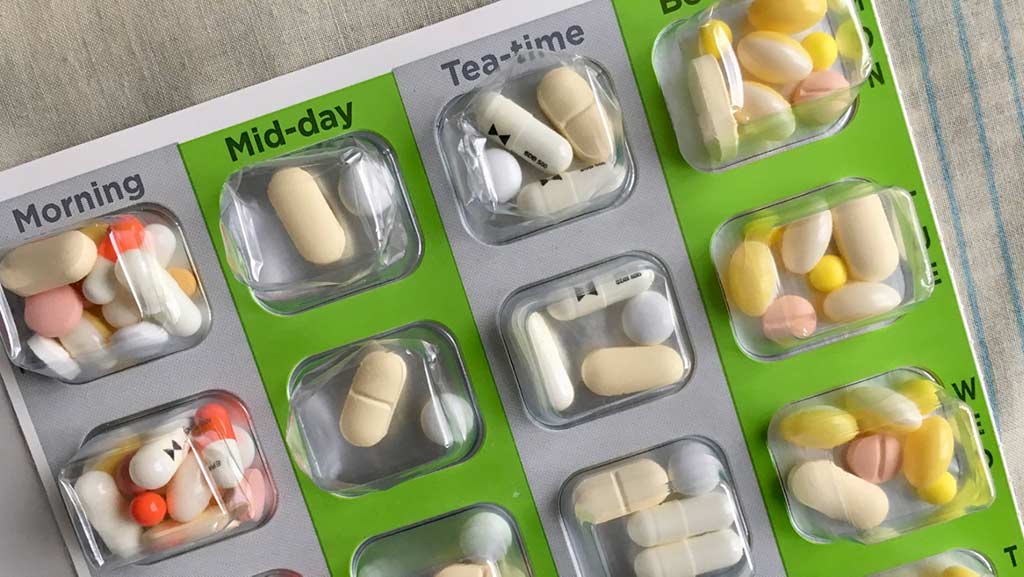
How does diabetes affect how your insulin works?
Insulin is a hormone produced in the pancreas that regulates how much glucose is in your blood. It helps control blood glucose (sugar) levels by telling your liver, muscle, and fat cells to take in glucose from your blood, helping the glucose to be used in the body for energy. A lack of insulin or resistance to insulin can cause diabetes.
Insulin resistance is when cells in your muscles, fat, and liver don’t respond well to insulin and can’t easily take up glucose from your blood meaning your sugar levels rise. As a result of this, your pancreas produces more insulin. Overtime insulin-producing cells can become damaged or destroyed and stop producing insulin. This results in insulin deficiency whereby it leaves too much sugar in the blood and not enough in the cells for energy. When there is too much sugar in the blood, this can be known as hyperglycaemia.
Type 1 diabetes
Type 1 diabetes is a medical condition where your blood glucose level is too high because your pancreas cannot produce any insulin. Type 1 diabetes occurs when your immune system, the body’s system for fighting infection, attacks and destroys the insulin-producing cells of the pancreas.
People with Type 1 diabetes rely on insulin treatments to control their blood glucose levels, and they can take it through either a pump or an injection. People with Type 1 diabetes are usually diagnosed earlier in life and it is not known to be linked to age, weight or lifestyle factors.
Type 2 diabetes
Type 2 diabetes is a condition where the insulin your body makes does not work properly, or it cannot make enough. Many people with Type 2 diabetes are able to carry on without medications, but may need to make a few lifestyle changes such as:
- Increasing exercise
- Losing weight
- Changing their eating habits
However, if lifestyle changes do not have a great enough impact, then people with Type 2 diabetes may progress on to oral medications and/or injectables which can be taken through injections or pumps.
Types of insulin
There are 3 common types of insulin someone could be prescribed which are listed below:
- Rapid-acting/short-acting is usually taken before your regular meals to protect your glucose levels from rising while eating.
- Intermediate-acting is also known as background or basal insulin. This means it works throughout the day. It is often combined with rapid-acting or short-acting insulin.
- Long-acting is slower than intermediate insulin, but very similar in how your body processes it. It is often combined with rapid-acting or short-acting insulin.
The type you are prescribed will depend on your body’s needs.
Insulin administration and injection sites

You will be advised the best times to take your insulin by your healthcare professional. It’s important to adhere to these instructions to control your blood glucose levels.
Insulin doesn’t come in pill form because your digestive system would break it down before it had a chance to start working. Many people with diabetes will self-administer by injecting with a pre-filled pen. If you inject regularly you will need to vary the areas of your skin where you inject to ensure it is being absorbed consistently.
The ideal areas to inject are the parts of your body with a larger layer of fat, such as:
- Abdomen
- Thighs
- Buttocks
If you inject in the same place too often, your skin may start to become stiffer, this can often lead to it becoming lumpy. It can help to imagine a grid drawn onto your body so you can pick a different square to inject into each time. After some time, you’d need to start again at the first square you chose, but that should have fully healed by the time you’ve gone back to that area.
Some areas of your body will absorb insulin quicker than others so it’s important to keep track of this. Speak to your healthcare professional if you have any concerns about your injection sites and they will be able to advise you.
Storage advice
It’s important to store your insulin properly to make sure it is effective:
- Insulin should be stored in the fridge and away from heat. If you go out it will be useable at room temperature for short periods of time, but if you’re travelling it’s best to keep it in a cool bag.
- Keep it out of sunlight.
- Check the expiry date and don’t use it if it’s out of date.
How can Spirit Pharmacy help you?
Spirit Pharmacy specialises in helping people with diabetes. We can dispense your insulin prescriptions (along with your other medicines) and deliver it free of charge directly to your house in insulated environmentally friendly packaging to keep it cool. We also offer free diabetes education to all our customers and our pharmacists can help with any queries you may have.
Find out more about Spirit Pharmacy.

The more medicines you are prescribed, the harder it can be to keep track of them. There are many ways that we can help you to make managing your medicines easier!
Why managing your medicines can be difficult
The thought of managing your medicines can be daunting. Remembering when to order your next prescription and making sure you take your medicines correctly can cause stress and anxiety. You don’t need to worry – we’re here to make it easier for you to manage your prescriptions.
It’s normal to worry about your medication. Common causes for concern include:
- Running out of medication, especially if you (or your loved one) have lots of prescription items
- If your medication is often changing, it can be hard to set a routine to take them at the right time of day
- The possibility of side effects, and not knowing what to do if your medicine causes them
At Spirit Pharmacy, we’re proud of our personal and friendly service. We can make managing your medicines a little bit easier for you. These are some of the ways we can help you:

Blister packs
Blister packs help you take your medication at the right times of the day. We sort your medicine doses into designated sealed compartments for particular times of the day. It’s a service we offer free of charge, just let us know when you put a prescription through!
Medicine reminders
We can remind you when it’s time to order your medicines, so you never have to worry about running out again. We can email or phone you when it’s time to order, tell us how you would prefer us to keep in touch.
Family medicine management
We can help you manage your whole family’s medicine too, including children under 16 and vulnerable family members.
You can sign up a family member and manage their medication by phone or online!

New medicines service
If you are starting a new medicine for a long-term condition, we can provide extra help and advice at a time that suits you. We will support you over several weeks to help you use your new medicines safely and to the best effect. If you have any questions or concerns about your medicines, feel free to contact us at any time (email is fine, but we love speaking to our patients on the phone too).
It’s important to take medicines as instructed. Always follow the instructions on the labels. Take them at the right time of the day, and take note of other advice, e.g. to take with food – this will help your medicines to work more effectively. Talk to your pharmacist if you have any questions, especially with new medicines or changes to prescriptions.
How we can help with managing your medicines
At Spirit Pharmacy our mission is to make health easy. You can speak with our pharmacists over the phone or online. We can provide you with readymade blister packs of your medication and can call to remind you when it’s time to re-order your medication. We can also answer any questions you may have about your medication such as, how to take them properly and what to do if you experience any side effects.
All of our parcels are sent with free next day delivery! You can also choose to have them delivered to your place of work, or even arrange to pick them up from your local post office. We send insulin in insulated packaging that can keep it cool for up to 3 days, meaning you don’t have to worry about it getting warm! We also offer free diabetes education to our patients, to help you better manage your condition at home.
You don’t have to worry about your medication anymore. Call us on 0116 464 5558 or click here to find out more and register with us.

The weather is getting warmer and many of us are looking forward to enjoying life in the sun. However, it can be harder to control your diabetes in the summer.
Longer periods of inactivity in the sun can affect your diabetes control, making your blood sugar levels higher than normal. For those on insulin, it is important to know that it is absorbed faster from an injection in warmer weather which can put you at risk of hypoglycaemia (hypo). But as long as you are vigilant about your diabetes control, then there is no reason why you can’t enjoy yourself just like anyone else.
We have some top tips you can follow to ensure you can safely enjoy yourself and keep track of your diabetes in the summer!
Keep an eye on your levels
As with any change in your lifestyle, remember is to check your blood glucose levels and adjust your insulin dose accordingly. Make sure you’re regularly checking your levels and keep a sugary snack to hand, just in case.

Stay hydrated!
Everyone needs to stay hydrated in the warm weather, but especially if you have diabetes. People with diabetes get dehydrated more quickly in the heat. Not drinking enough liquids can raise your blood glucose levels which can lead to you urinating more, causing dehydration. Keep a bottle of water close by at all times, and drink regularly to help control your blood sugar levels.
Keep your meters and test strips out of the sun
The warmer weather can affect your meters and test strips just as much as it does you. Try to keep your meters and test strips as close to room temperature as possible and out of direct sunlight. (But don’t refrigerate them- the cold temperature has the same effect as warm temperatures against the meters and strips and can lead to misleading results.)

Keep your insulin cool
Insulin damaged by the heat will become cloudy. It can become grainy and sticky or maybe slightly brown (do not use insulin if it looks like this!)
Insulin is best kept in the fridge or a cool bag, just make sure it doesn’t freeze.
Always read the temperature guidance for your medication and test strips.
Take the usual good care of yourself!
Apart from having to check your blood glucose, you’re no different to anyone else enjoying themselves in the sun. Just keep hydrated, make sure you’re regularly applying sunscreen to exposed areas and take regular shade breaks to avoid dehydration, overheating or getting heat exhaustion.
How can we help?
Our pharmacists are trained to support you in managing your diabetes. Register with Spirit Pharmacy to receive your medication delivered direct to your door. You will have access to a team who can answer your queries and help you with any challenges you may be facing. You will also have access to online diabetes education if you would like it.
Register here
There are many reasons to use an online pharmacy, but sometimes people have concerns about using the internet to order their medicines. In this blog, we’ll dispel some of the common misunderstandings about using an online pharmacy.
The benefits of using an online pharmacy include:
- Convenience: You can order your medication online at any time, wherever you are.
- Speed: It only takes a minute or two to order your medicines
- It’s easy: You order online (or by phone or email) and the pharmacy posts your medicines to you, so you don’t have to leave the house.
However, we know that many people have questions about using an online pharmacy for the first time. Let us put your mind at rest by busting the common myths:
1. I’m not sure how an online pharmacy works with my doctor’s surgery
The computer systems at online pharmacies, like community pharmacies, are set up to receive prescriptions electronically from your GP so that any pharmacy can dispense your prescription medicines. All you have to do is nominate which pharmacy you’d prefer to use.
At Spirit Pharmacy, we work with more than 9,300 GP practices in England. That means that once we are your nominated pharmacy, your doctor will send us your prescriptions. We’ll dispense your NHS prescriptions, post them to you free of charge and keep you updated with the progress of your order too. You can find out more here or give us a call on 0116 464 5558.
2. It’s difficult to start using an online pharmacy
Many people are surprised to find how easy it is to start using an online pharmacy. It takes under 5 minutes to complete the online form (click on the link at the top of the page).
We’ll then take over and ask your doctor for your prescription details and remind you when it’s time to order your medicines. That’s all there is to it!
3. I can’t talk to a real person
Ordering your medicines online is fast, easy and convenient. But, sometimes you can’t beat talking with a real person, especially if your prescription has changed or you want to ask a pharmacist questions about your medicines, such as their side effects or taking several medicines at the same time. At Spirit Pharmacy, you have the best of both worlds. You can order online, and you can also phone our friendly pharmacists for advice and information. They’re available during our opening hours to talk to you, answer your questions and put your mind at ease. You can call our pharmacists on 0116 464 5558.
4. It will take too long to get my medicines
Many people think they’ll have to wait much longer to get their medicines from an online pharmacy, but that’s not true. At Spirit Pharmacy, we’ll remind you when to order your medication, so there is plenty of time to:
- ask your GP to authorise your prescription and send it to us electronically
- dispense your medication safely
- post your medicines and for you to take delivery of it
At Spirit Pharmacy, we start to process your prescriptions as soon as you order them (which you can do online, on the phone or by email). We aim to dispense and dispatch your medication on the same day we receive authorisation from your GP.
5. My medicines might get lost in the post
Spirit Pharmacy uses secure, 24 and 48-hour delivery services. You can choose the delivery address for your medicines too, and lots of people prefer the convenience of having their medications delivered to their place of work (which is why we always use plain and discreet packaging). You can also let us know if you prefer to have your medicines delivered on a particular day in the week, and if you aren’t at home when we deliver, you can arrange re-delivery using the missed delivery card.
If you have medicines that you keep in a fridge, such as insulin, we’ve got that covered too. We use special multi-award-winning insulated packaging that exceeds guidelines for refrigerated pharmaceutical products, so your medication is safe in the post. The packaging uses sustainable, compostable, recyclable or recycled materials.
About Spirit Pharmacy
Spirit Pharmacy is a friendly distance-selling pharmacy with a particular interest in diabetes. We provide the same dispensing services and advice you would expect from your local community pharmacy, or dispensing doctor, with the convenience of secure repeat prescription ordering and fast, free delivery.
We process prescriptions for all patients. If you pay for your prescriptions, we will call you before we dispense them to take payment. If you are exempt from prescription charges, you can add your exemption details via our website or you can give us a call.
We love providing pharmacy services for everyone, but especially people living with diabetes. We offer free reviews of your prescriptions and access to free online diabetes education.
Click here to register, and we’ll make it easy for you to manage your repeat prescriptions. If you have any questions, please call us on 0116 464 5558.
In this article, we are pleased to pass on some inspirational thoughts from Sue, Editor of Desang magazine, a free online magazine for people with diabetes with the latest news, views, reviews, features, free samples and giveaways. Check out the latest issue here, and read about how Spirit is supporting the NHS during COVID-19.

It’s been a while
I have been living with Type 1 diabetes for nearly 50 years, having been diagnosed at the age of five, so I have pretty much always had to take care of myself. It is scary being told you have diabetes and it’s a steep learning curve for all the family.
Constant injections became just a part of my normal life and I was lucky to have a dad who was an engineer and a mum who was a nurse so keeping track of doses and weighing food also became part of the family’s normality.
Back then, blood test meters were not yet available. I got my first one when I was 17. We had tablets to drop into a test tube with a urine sample and which fizzed up and changed colour to show how ‘sugary’ you were. Then later the much nicer urine test strips that I had to pee on, and they would similarly change colour.
These days I am able to keep my diabetes under control using a pump, CGM, great support from my diabetes team at the clinic and live a full and busy life.
I always keep blood testing and injecting kit with me at all times along with a sugar source, remembering to replace supplies of blood tests strips, needles, and insulin supplies as they get used up.
I worked in PR and journalism and constantly carried my diabetes kit around to press events and conferences, I came up with the idea of designing a ‘kitbag’, something to stick all my kit in. Back then, and we’re talking about 15 years ago, diabetes carry cases and wallets were not as easily found as they are today. I strongly felt that my diabetes kit deserved a nice place to ‘live’. It was after all ‘life-critical’ to me, more than just a lipstick or a packet of tissues.
Over the years I developed the brand name Desang (it roughly means ‘of blood’) and the Desang range of diabetes kitbags. The kitbags are made of leather and last for ages!
I started to write about all the kit that goes into kitbags – blood test meters, insulin pens, hypo treatments. Then, as products evolved, I wrote about insulin pumps and CGM sensors.
Over time, I reverted back to my old love, publishing. What had started as a newsletter out to my tribe of ‘kitbaggers’ evolved into a ‘flippy’ online magazine with a focus on kit as well as information about how to live well with diabetes.
I am extremely proud that I can give something back to the diabetes community and have certainly adapted to the challenge of living with diabetes.
Tickets please!

As we enter summertime, by this time of year I usually start writing about advice on travelling with diabetes. Not this year though.
I have many happy memories of travel, for both business and pleasure. For many years I have encouraged people to buy kitbags for travel, especially when security measures become more rigorous. It helps to have one bag with all your kit in it to show someone at Border Control.
Although, looking at this holiday snap, maybe I had already started to plan ahead!
Moving on…

The recent and ongoing coronavirus outbreak has increased my gratitude for my circle of friends and the healthcare professionals who support me as well as the great people I know and respect in the diabetes arena. It is my belief that while there are some competing interests, in the main we’re all heading in the same direction, which is to say improving the lives of people living with diabetes until cures or a definitive prevention is found.
Seven tips for lockdown are:
- Keep a good eye on your diabetes supplies of kit and medicines. Order earlier than you would normally.
- Have a ‘sick day plan’ written down that helps others to help you if you need it, including your usual medications, timings and doses and numbers of your GP or clinic.
- I’ve invested in some medical ICE ID (in case of emergency) that I wear all the time now.
- Keep as active as possible. Climb the stairs until you are a bit breathless. No stairs? Construct one simple step and just use that. You don’t have to do an hour at a time. Five minutes four times a day is better than nothing.
- Keep an eye on food portions. Either boredom or anxiety (or even both) are likely to make you feel hungry. Keep your eyes and brain engaged — use the same plate, measure things out. We’ll all come out of lockdown a bit tubbier than when we went in, but let’s not make it too much!
- Stay connected! Whether it’s phone calls, letters, or learning to use Zoom or any other means to see people and keep in touch. I’ve had to learn Zoom, Skype and Team Viewer. Initially a bit of a challenge, and there’s always a few issues with technology at some point, but, really worth it to see the ones you love.
- Stay home as much as possible to be certain of not being exposed. Wear a mask and gloves if you do go out. Stay alert to symptoms and do not delay if you have any worries at all about your diabetes. The NHS is not shut to other conditions needing attention other than COVID-19.
Life is a journey, I just happened to undertake mine with a kitbag full of diabetes bits and bobs. So, while am I not going to go on holiday for a while, I shall dig out my old photo albums (remember cameras with films in them?) and reminisce about some of the places I’ve been before and hope I will see again one day soon.
The Desang range of kitbags can be found at www.desang.net
It’s free to sign up to get Desang’s online magazine, just send an email saying ‘sign me up’ to info@desang.net
See the magazine at www.desang-magazine.co.uk

Walking is a great exercise for people with diabetes, who should pay particular attention to their foot health. It is light exercise, but also has excellent health benefits.
Walking can also help you take proper care of your feet and legs, which is vital if you have diabetes. It’s common knowledge that when you have diabetes, you’re at a much higher risk of developing problems with your feet. It can be a constant concern, worrying about losing a foot or a toe, but these aren’t inevitable side effects of diabetes. If you continue to maintain your blood glucose levels and have your feet checked regularly, you can avoid these problems and maintain good foot health.
How does diabetes affect your foot health?
Over time, poorly managed diabetes can cause nerve damage, otherwise known as diabetic neuropathy. This damage can cause tingling and pain in your feet and can lead to a loss of sensation, which is when other problems can arise. If you lose sensation in your feet, you won’t be able to feel things such as pebbles in your shoes or a blister on your foot, which can lead to cuts and sores which can become infected.
Diabetes can also affect your blood flow. If you have cuts or sores on your feet, your blood flow to these areas will be lowered, which means they’ll take longer to heal. If a cut or sore doesn’t heal, it can result in gangrene. In this case your doctor will refer you to hospital to have the infected tissue removed, but in extreme cases, gangrene can result in skin grafts and sometimes amputation.
What can I do to improve my foot health?
All of the cases listed are worst-case scenarios! If you manage your diabetes well, you are less likely to experience any extreme issues with your feet. It’s easy to manage your condition, especially by keeping on top of your medication, diet and regularly checking your feet.
How can I check my feet?

Spend a few minutes each day examining your feet. Look out for:
- Cuts and sores
- Fluid-filled blisters and swelling
- Ingrown toenails, where the edge of your nail is growing into the skin
- Athletes foot
- Warm spots
Take the time to treat these problems as they arise rather than leaving them. Most are easily resolved with a bandage or some over the counter treatment, but if the problem becomes consistent, then you can contact your GP or pharmacist for further support.
How can we help?
Our pharmacists are trained to support you in managing your diabetes. Register with Spirit Pharmacy to receive your medication. You will have access to a team who can answer your queries and help you with any challenges you may be facing. Confidential advice is available to all people registered with the pharmacy, as well as access to online diabetes education if you would like it.

While we know stress doesn’t cause diabetes, there is a link between stress and blood sugar levels, so it can affect your day to day handling of your condition.
Being diagnosed with diabetes or any chronic illness causes stress, that’s natural; it’s your body’s reaction to a new and challenging situation! You have to come to terms quickly with a diagnosis that changes your life, and this stress is only amplified when you feel like you or others don’t understand it.
Diabetes, stress and blood sugar
Stress isn’t healthy for anyone, diabetic or not. However, when you have diabetes, stress can have a specific impact on both your insulin and your blood sugar levels.
When the body becomes stressed, it releases stress hormones like cortisol and adrenaline into your system. In a person with diabetes, these hormones can make it harder for your insulin to work. When cortisol is released, it triggers your bodies natural ‘fight or flight’ reaction – this can cause your heartbeat and breathing to speed up. However, it also releases glucose stored in your liver into your blood so the energy can get throughout your system. In a person with diabetes, the pancreas struggles to keep up with the high demand for insulin, causing insulin resistance. As the energy can’t get into the cells, this causes your blood sugar levels to rise.
If your blood sugar levels rise too much, this can cause a ‘hyper’ (hyperglycaemia) which can lead to you feeling thirsty, lethargic and give you a headache. If the stress doesn’t go away, it can keep your blood sugar levels high and put you at a higher risk of other diabetes complications, as well as affecting your day to day mood and how you look after yourself and your condition.
But don’t worry! There are plenty of things you can do to take the pressure off.
Stress busters

Putting yourself first should always be top of your priority list, but it’s easy for that to take a backseat when you’re feeling stressed. When you’re stressed, take control of the aspects you can change about your life and learn to say no to things that will unnecessarily add to your load. Jot in a bit of time in your diary for some well needed you time. Spend time with your friends and family, go on a nice walk, light a candle, listen to soothing music. Whatever it may be, just take some time to step back and relax. Look at this page to get some tips on how you can relive stress.
The bottom line is stress will always find a way to wiggle itself into your life, but by making time for things that can relieve it, it can become much more bearable for you in your day to day life.
We can help
It doesn’t matter whether the stress you’re feeling is related to diabetes or not; it’s getting the support you need to manage it that is important. Our pharmacists are trained to support you in managing your diabetes. Register with Spirit Pharmacy to receive your medication. You will have access to a team who can answer your queries and help you with any challenges you may be facing because of stress. Confidential advice is available to all people registered with the pharmacy, as well as access to online diabetes education if you would like it.

How can you stay fit and healthy when you have diabetes and self-isolation has been forced upon you for 12 weeks? I’m sure it’s a question on everyone’s mind, especially when you have a health condition which requires you to stay active. I know that isolation seems like such drastic action, but if you have any underlying health conditions, including diabetes, you’re put into a high-risk group of catching COVID-19. Although it’s frustrating, isolation is in your best interest.
What can you do?
You have plenty of options to keep yourself moving and motivated indoors! Working out at home is the new going to the gym. Why not try walking up and down the stairs a few times, use your chair or sofa to do squats or do a push up against your wall? There is plenty of opportunity to stay active indoors, it might just take a little more motivation than usual. See this blog for some easy at home work outs for beginners to get you into the swing of things.

Isolation doesn’t mean just staying inside your home, you’re perfectly fine to go out into your garden and this will help you feel less trapped during this time. Why not try some light gardening? As well as being good exercise, being outside for a few hours a day will help reduce any stress and anxiety that can build up during the isolation time. Read this blog to get an idea on how to start.
You’re also able to leave the house to exercise once a day, so why not go for a light jog or brisk walk? As long as you keep your distance from others, a bit of time outside will help you mentally and make staying inside more bearable.

It’s not just about your body, trying to keep your mind active can be just as much of a struggle when you’re isolated. The best thing to do is to try and keep a routine, especially if you regularly take medication. It’s probably already second nature to you and you don’t need us to tell you how important it is, but maintaining a good glycaemic control and regularly taking your medication will keep you healthy and boost your state of mind too.
Other day-to-day things can also help with this such as: reading, puzzles, sudoku or just having a call with a family member, maybe a good time to try a video call so they feel a bit closer! Try to keep as much of your day-to-day life as normal as possible and you’ll find it all a lot easier to deal with.
We can help
During this period of isolation, it’s easy to feel overwhelmed and alone, but our pharmacists are here to help you. We’re still operating as normal and would love to help you during these hard and uncertain times. Let us worry about your medication, so you don’t have to. Register now to have your prescriptions delivered first class to your house at a time that suits you.

People who have diabetes are at a higher risk of developing eye complications, specifically known as diabetic retinopathy. The images above show how diabetes-related eye problems can affect your vision. However, by taking an active role in managing your blood glucose you can reduce your risk of this happening.
What is diabetic retinopathy?
Retinopathy is damage to the retina, the innermost layer in the eyes. This can lead to loss of vision. Over time, high levels of glucose in the blood can damage the retina. The retina is a sensitive layer at the back of the eye that has many tiny blood vessels. These blood vessels can become damaged and leak. New blood vessels form in the retina to compensate. These blood vessels can easily leak too.
Imagine how easy it is to drink water through a thin straw. Now imagine how much harder it is to drink a thick milkshake through the same straw. Not easy at all! In the long term, these damaged blood vessels cause problems with vision and if left untreated can stop you seeing.
The longer you have unmanaged diabetes, the more likely you are to experience eye problems.
Eye health

Regular checks and general awareness
If you have diabetes, once a year, you will be invited to a free NHS retinopathy screening. It is essential that you attend these appointments. When you attend someone will put a special eye drop into your eyes. These eye drops dilate your pupil. For that reason take someone with you. Do not drive to your appointment as you will not be able to drive for a short while after. And don’t forget your sunglasses as your eyes will be a little sensitive to light after the test.
A picture of the back of your eye will be taken to detect any early signs of diabetic retinopathy. If required, you may need to see an eye specialist. Some people need eye treatment to preserve their vision. One treatment is known as laser therapy. This is where a beam of light makes tiny burns on the retina to stop blood vessels leaking and reduces the growth of new vessels.
But don’t wait for an appointment if you think you have a problem. Make an appointment with your healthcare professional if you experience:
- Sudden blurred vision
- Changes in normal vision
- Dark areas in normal vision
- Spots or blobs floating inside your eye
What can I do to prevent diabetic retinopathy?

There are many things you can do to help keep your eyes healthy and help prevent diabetic eye complications.
- Manage your blood glucose — Taking control of blood sugar can slow down or stop the progress of eye disease. If you haven’t noticed any problems yet, there is no reason why your eyes should be any worse than people who do not have diabetes. Check your blood sugar levels as advised by your healthcare professional.
- Take your meds — Remember to take any medication you have been prescribed to help manage your diabetes. Blood pressure and cholesterol levels should also be kept under control.
- Stop smoking — We all know that smoking is bad for our health, but in people with diabetes, it increases the risk of developing eye complications. Speak to your healthcare professional or visit NHS support.
- Stay healthy — Healthy eating and regular exercise will help keep your blood sugar levels stable and help with weight control. Find what works for you!
- Attend your regular check-ups, including any eye screening appointments.
Spirit Pharmacy is here to help
Our pharmacists are trained to support you in managing your diabetes. Register with Spirit Pharmacy to receive your medication. You will have access to a team who can answer your queries and help you with any challenges you may be facing because of poor eyesight. Confidential advice is available to all people registered with the pharmacy, as well as access to online diabetes education if you would like it.
Sign up to Spirit Pharmacy by clicking the Register button at the top of the screen.

Living with diabetes can be a challenge! Controlling blood sugar fluctuations is key to managing not only your physical health but also your emotional wellbeing. Stressing about your diabetes can lead to problems. In this blog, we suggest ways of keeping diabetes-related stress levels under control and provide some tips to help us think about talking more.
Feeling low is normal
We all have those days when one minute we are full of life, and the next we want to curl up on the sofa and shut the world out for a few minutes. It’s not surprising, really. Being diagnosed with diabetes and learning to live with a long-term condition requires some changes to lifestyle as well as a change in mindset.
People living with diabetes are more likely to experience mental health problems such as depression and anxiety1,2. This is partly because when blood sugars keep going up and down it can cause rapid changes in mood and affect mental wellbeing.
It’s important to remember that if you manage your blood sugar levels by following the advice of your doctor or nurse things can be controlled, leaving you to live the life you want to lead.
Managing stress
Managing an invisible condition can be exhausting and isolating, but worrying can cause complications. Worrying increases your adrenaline levels which in turn can make you feel bad-tempered and stressed.
Your feelings change as your adrenaline level goes up and down. Where are you on the scale?

Remember, there are small changes you can make to help stop feeling tense and stressed:
- Do a little exercise – a gentle walk or a little yoga can help distract you and make you feel calmer.
- Avoid drinking too much coffee and tea – caffeine makes tension worse. Try and drink less than 4 or 5 cups a day.
- Practise deep breathing – shallow breathing can make anxiety worse. Put one hand on your chest and the other on your stomach and breathe deeply, so only your stomach rises and falls.
The power of talking

Talking about feelings and mental health is not always easy. Society is changing with high profile celebrities making it more visible. I in 4 people struggle with mental health issues and this month “Time to Talk Day” encourages everyone to be more open about mental health. Check out their page for more details.
Talking to a friend, relative or work colleague, who listens patiently can often be all the support you need to take a step back and reflect on how you are feeling. But it doesn’t have to be someone you know personally. Sometimes finding like-minded people who have a deep level of understanding of living with diabetes, or strangers who can listen without judgement, are just as helpful.
Top talking tips
- Build trust and confidence – Talking to people you know regularly helps build strong bonds and relationships. When you feel comfortable and trust people, you are more likely to reach out about how you feel. Get involved in things where you can have more social interaction to create more opportunities to talk. Think about organising regular get-togethers or maybe join an activity group. The important thing is to make the time to chat.
- Get an outside perspective – Talking to others can help you get perspective on your situation and enable you to talk about how to reduce stress and anxiety. Stress can cloud your ability to see solutions that might seem obvious to an outsider. As well as your healthcare professional, there are also local diabetes support groups you can join. They are often run by people living with diabetes and offer a place to talk and share helpful advice. Find your local group.
But if you feel uncomfortable in a group you can always look for online diabetes communities to join. - Turn negative thoughts into positive thoughts and actions – When you talk about how you are feeling, you begin to realise that other people experience similar emotions. You are not alone! Find things that make you feel good and make you feel great. Try to plan something positive to do every day whether it’s meeting up with friends or watching your favourite TV programme. Focus on the brilliant person that you are and remember all the wonderful things in your life!
A few positive thoughts to help you on your way
- If I take charge of my diabetes, it will not stop me from living a normal life.
- It’s ok to feel a bit sad and worried sometimes— Who doesn’t?
- A healthier lifestyle will help me be a much better and happier person than an unhealthy one.
References
- https://www.england.nhs.uk/blog/diabetes-and-mental-health-call-out-for-examples-of-best-practice/
- Ducat, L., Philipson, L. H., & Anderson, B. J. (2014). The mental health comorbidities of diabetes. JAMA, 312(7), 691–692. doi:10.1001/jama.2014.8040 https://www.ncbi.nlm.nih.gov/pmc/articles/PMC4439400/